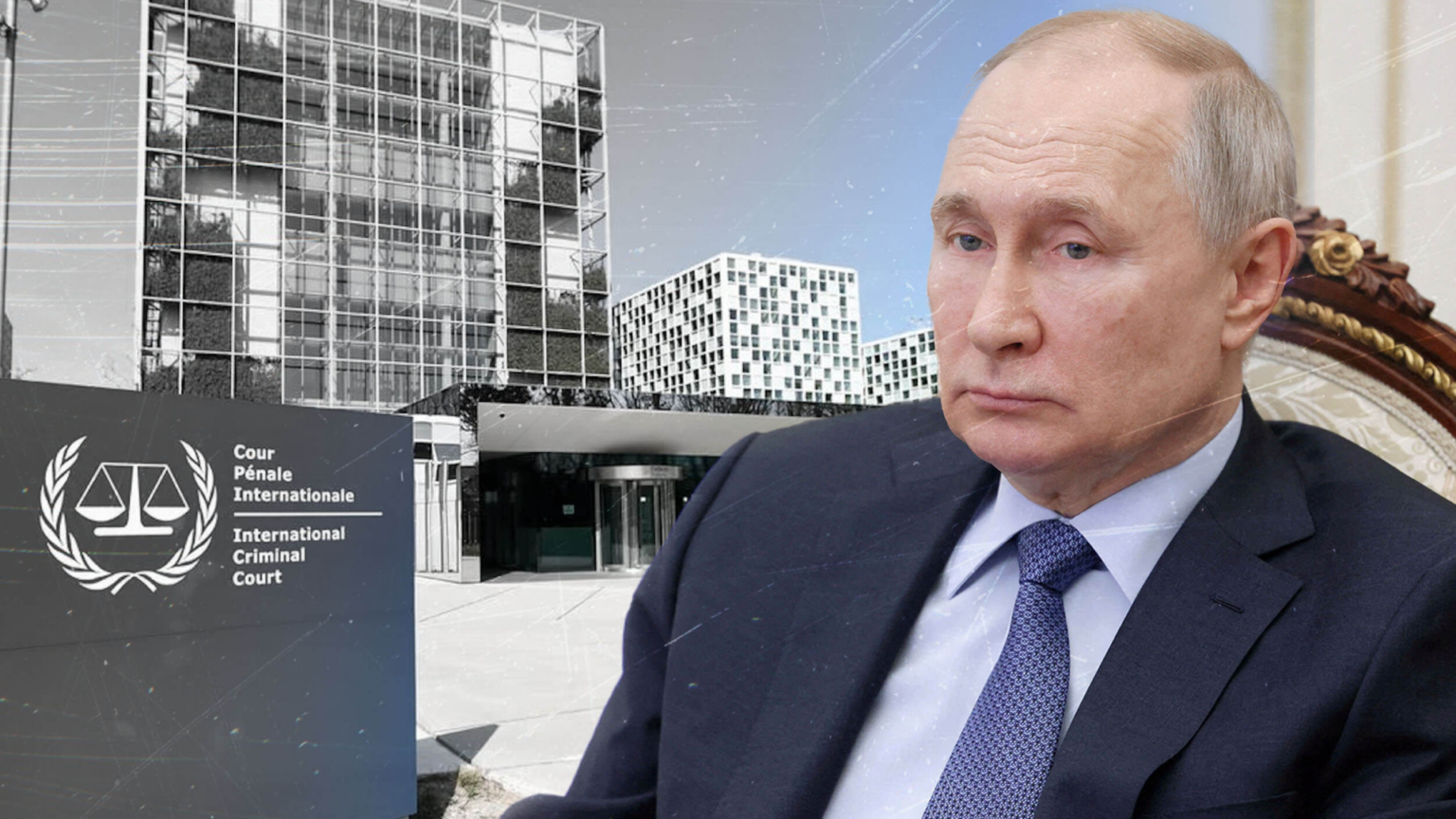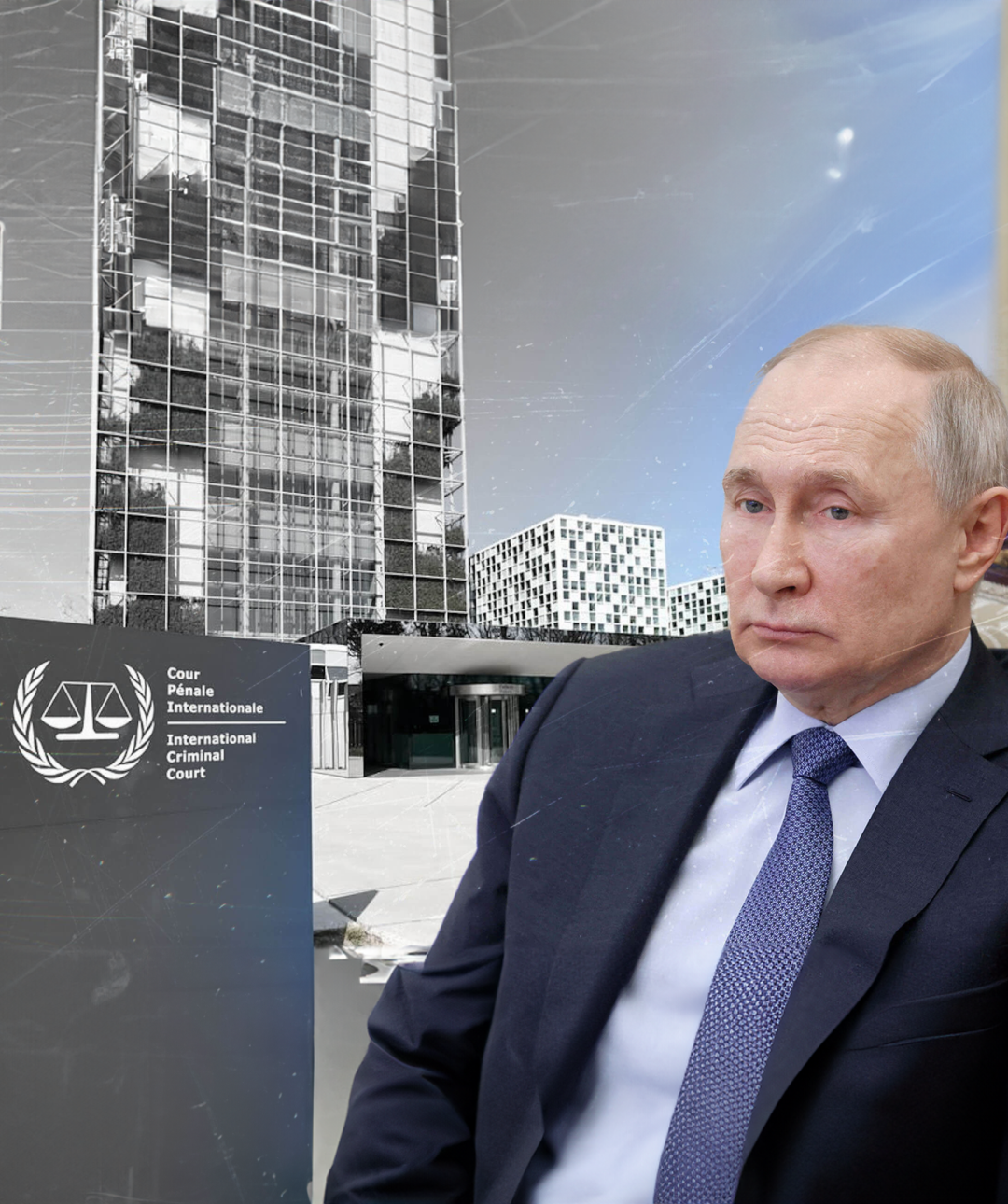

By Hannah Van Dijcke, International Legal Associate, and Claudia Bennett, Legal & Policy Researcher
On March 17, the International Criminal Court (ICC) issued an arrest warrant against Russian President Vladimir Putin and Children’s Rights Commissioner Maria Alekseyevna Lvova-Belova for unlawfully deporting and transferring Ukrainian children to Russia.
You might be thinking this means we can finally hold Putin accountable for his atrocious crimes. Or you might be wondering if this warrant carries any weight at all and what the ICC has to do with it.
The significance of the warrant lies somewhere in the middle — between having no practical implications and being the pathway to justice for Ukraine. To grasp why, you need to understand the historical context of the ICC, how it operates, and how international law generally functions.
What is the ICC & how does it work?
The idea behind the formation of the ICC was simple: The litany of atrocities in the 20th century must not go unpunished. The ICC would be a permanent independent court to address the most serious crimes worldwide —war crimes, crimes against humanity, and genocide. Before the ICC — which was established in 2002, but adopted by the UN General Assembly (UNGA) in July 1998 at a Rome conference —there were only temporary, ad-hoc courts for specific conflicts during set periods, like the Nuremberg and Tokyo trials and the International Criminal Tribunals for the former Yugoslavia and Rwanda.
There are 123 States parties to the Rome Statute that comprise the ICC;33 of which are African States; 19 Asia-Pacific; 18 Eastern European; 28 Latin American and Caribbean; and 25 Western European. The ICC has jurisdiction over crimes committed within a State Party or by one of its nationals. Notably, Russia and Ukraine aren’t parties to the Rome Statute. However, based on Article 13 (b) and Article 12 (2)-(3)of the Rome Statute, the UN Security Council can refer a case to the court, or a State can accept the jurisdiction of the Court, such as Ukraine. Unlike domestic courts, where international law provides heads of State prosecution immunity, heads of State aren’t exempt from criminal responsibility under the ICC.
ICC Arrest warrants against sitting heads of State
Since its inception, the ICC has only issued warrants against two other sitting heads of State. That Putin is only the third speaks volumes about the horrific atrocities he and Lvova-Belova have committed.
The first sitting head of state to receive an ICC arrest warrant was Omar Hassan Ahmad al-Bashir of Sudan, in 2009, then again in 2010 for war crimes, crimes against humanity and genocide. The second was Libya’s Muammar Gaddafi in 2011 for crimes against humanity committed against political opponents. For all three warrants, the ICC requested that member States arrest al-Bashir and Gaddafi should they enter their territory and surrender them to the ICC. That never happened. Al-Bashir traveled to several member states after the issuance of his warrants, like South Africa or Jordan, neither of which arrested him.
The same will likely happen in Putin’s case.
While member States are legally obligated to arrest him, they are unlikely to. In any case, Putin is unlikely to travel because the warrant was shared publicly. The Court decided that “public awareness of the warrant may contribute to the prevention of the further commission of the crimes.” If kept secret, Putin might be more likely to travel and, consequently, be more likely to be arrested, but that’s not guaranteed.
What’s next for Putin and the people of Ukraine?
As Rebecca Hamilton, a former lawyer at the Office for the Prosecutor at the ICC, said, “securing custody of a suspect is an important function of an arrest warrant; it is not, however, its only function.” While this warrant may not result in having Putin in custody and in front of the ICC, it serves other important functions.
The crimes the ICC found Putin and Lvova-Belova allegedly responsible for have been publicly documented, and there is no denying what is happening: Children are being kidnapped in Ukraine and taken to Russia. The ICC said the warrant might deter mid-level officials from abducting more children, as they are aware of potential criminal liability. And, hopefully, it will dissuade Russian families from fostering and adopting Ukrainian children.
The warrant also helps to further isolate Putin. By issuing the warrant, the ICC, speaking on behalf of its 123 member States, has designated Putin a war criminal. Of course, he can still rely on allies like China and Iran, but he’s now a greater international community pariah.
The significance for the Ukrainian people is immeasurable. The warrant serves as an acknowledgment that they have been subject to egregious human rights violations. And it serves as reassurance that the international community is watching.
The warrant will by no means end Russia’s invasion of Ukraine. It won’t immediately stop the war crimes and crimes against humanity occurring daily. But it does provide hope. Hope that Putin will be held accountable. Hope that justice will prevail. And hope that Ukraine will be free.
HRF stands with the people of Ukraine, especially the witnesses and survivors who have shared their stories with the Court, and encourages the ICC to quickly and efficiently investigate the abuses. We also call upon democratic governments worldwide to support Ukraine and take action against Putin’s regime.
Join us in helping save lives and stand up to tyranny.

Reach out with any questions or support needs.
Become part of our mission-driven team.
Find answers to commonly asked questions in our FAQs.
Hit enter to search or ESC to close